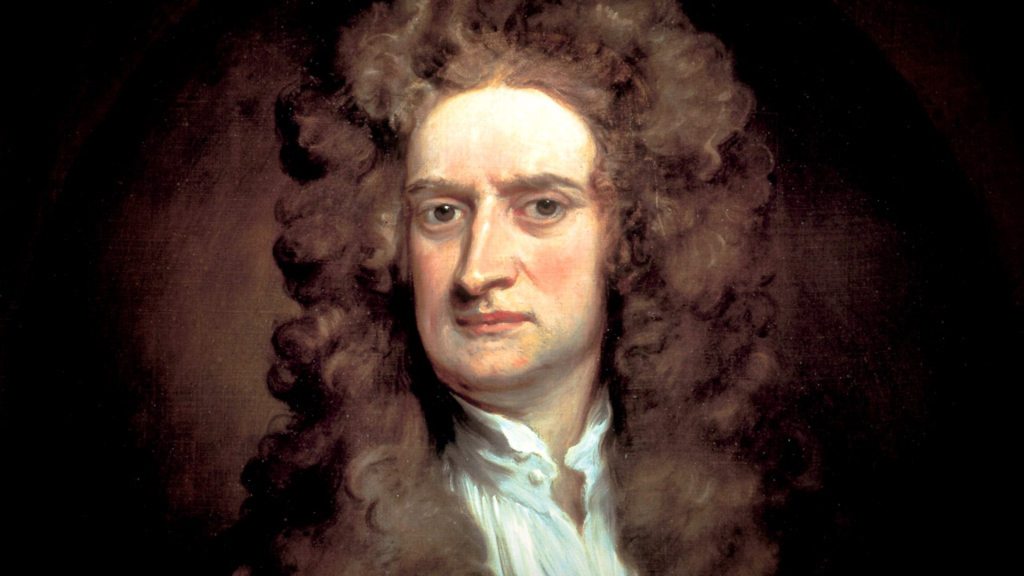Sabbath Day Thoughts — “Beloved Christmas Hymns and Their Stories” Luke 2:22-40
In our scripture lesson this morning, the infant Jesus encounters two people who waited a very long time to greet the Messiah: Simeon and Anna. While Luke records their words, tradition tells us that the two sang their praises for the newborn king. How fitting, then, it is to celebrate this first Sunday of Christmastide with a celebration of some of our most loved Christmas hymns and their stories.
“Good Christian Friends, Rejoice” is one of our oldest Christmas hymns. This medieval carol dates to the fourteenth century. The words are believed to have been written by Peter of Dresden, who served as the Rector of the Christian School in Dresden. He may have written it for his students. Peter was fired from his post and forced to flee to Prague in 1412 because of his religious convictions. He was a follower of the early church Reformer Johann (Jan) Huss, whose work anticipated the 16th century work of church leaders like Luther and Calvin. Huss, however, was burned at the stake for translating the Bible from Latin into the language of the people. Peter of Dresden died in exile around 1440. The first printed record of the hymn is found in the University of Leipzig library and dates to 1405.
The sprightly music, IN DULCI JUBILO, is a German folk tune from the fourteenth century. It has long served as the setting for Peter’s words.
The words of “In the Bleak Midwinter” are a poem, written by Christina Rossetti. Christina (1830-1894) was born in London to an Italian exile family. Her father was a political refugee, classics scholar and poet, who taught at King’s College. She received her education at home with private tutors and her mother, who was also a classics scholar. Her sister and two brothers, like Christina, were poets and writers. Known as one of the great beauties of her day, Rosetti was a model for several artists. Although admired and beloved by many, Rosetti’s first and lasting love was the Lord. She rejected three proposals of marriage on religious grounds. She was an abolitionist, early advocate for animal rights, and volunteered for a number of years at the St. Mary Magdalene house of charity, a refuge for former prostitutes. Christina exerted influence and garnered praise from such literary notables as Gerard Manley Hopkins, Alfred Lord Tennyson, and Virgina Woolf.
The hymn tune we sing today, CRANHAM, was composed for Rosetti’s poem by Gustav Theodore Holst in 1906. Like Christina, Holst was the child of political refugees who found sanctuary in Britain. Holst is best known for his orchestral suite “The Planets.”
The words of “O Little Town of Bethlehem” were written by one of the most popular preachers of the 19th century Phillips Brooks. On Christmas Eve of 1865, Brooks traveled from Jerusalem to Bethlehem by horseback to attend worship at the Church of the Nativity, built at the site of Jesus’s birth. Brooks recalled that inspiring evening, saying, “I remember standing in the old church in Bethlehem close to the spot where Jesus was born when the whole church was ringing hour after hour with splendid hymns of praise to God, how again and again it seemed as if I could hear voices I knew well, telling each other of the wonderful night of the Savior’s birth.” Three years later, as Brooks served a church in Philadelphia, he recalled his magical night and wrote these words.
The music was composed for these lyrics by the church organist, Lewis Redner. Brooks requested a new composition to match his lyrics, but Redner struggled to come up with a tune. On the night before the Christmas program, inspiration struck. Redner awoke with this music ringing in his ears.
The words to “Hark! the Herald Angels Sing” were written by that most prolific of 18th century British hymnwriters Charles Wesley. Tradition tells us that Wesley wrote constantly, even while riding on horseback. When inspiration struck, Wesley would stop his horse, run to the nearest house, and ask for pen and ink. He was said to have averaged ten poetic lines a day for fifty years. He wrote 8,989 hymns, ten times the number composed by the only other candidate (Isaac Watts) who could conceivably claim to be the world’s greatest hymn writer.
Wesley was notoriously intolerant of anyone changing his words. As originally written by Wesley in 1739, this hymn began, “Hark, how all the welkin rings.” Welkin?! “Welkin” is an Old English word for the firmament or vault of heaven. It was as unfamiliar to singers in the 18th century as it is to us today. Fourteen years later in 1753, Wesley’s friend George Whitefield overcame Wesley’s objections and changed the words to make them more accessible. People have been singing “Hark! The Herald Angels Sing” ever since.
Our next Christmas hymn, “The First Nowell,” originally had eleven verses! Perhaps we are thankful that only six are preserved in our hymnal. This traditional English carol was first recorded in Cornwall and published in 1823. The carol is believed to be much older, with roots dating to the Middle Ages.
“Nowell” is derived from the Old French word Nouel, which in turn comes from the Latin word natalis, which means birth. Some say that there are also overtones of nouvelle (new) in Nowell, giving it a secondary meaning of declaring something newsworthy – like the Medieval version of “Extra! Extra! Read all about it!”
Regardless of its true origins, people have been saying and singing “Nowell” for a very long time. In fact, according to the Oxford English Dictionary, the earliest recorded use of Nowell as a Christmas greeting dates to the year 1255 when Chaucer used it in his “Franklin’s Tale,” writing, “and Nowel crieth every lusty man.”
“Go, Tell It on the Mountain” comes to us from the tradition of African American spirituals. The words allude to Isaiah 52:7, “How beautiful upon the mountains are the feet of the messenger who announces peace, who brings good news, who announces salvation, who says to Zion, ‘Your God reigns.’”
The spiritual was first published by African American scholar and musicologist John Wesley Work. The son of a church choir director, Work grew up in Nashville and taught Latin and music at the historic black college Fisk University. With his wife and his brother, Frederick Jerome Work, he began collecting slave songs and spirituals across the south in the late 19th century, publishing them in two volumes. The latter book, New Jubilee Songs and Folk Songs of the American Negro (1907), included the first publication of “Go Tell It on the Mountain.”
Work directed the “Jubilee Singers,” a select choir of the university which toured extensively, including travel to Europe where they were well received and raised significant funds for their school. Work was forced to resign from his post at Fisk in 1923. The traditional songs that he so loved were considered backwards and unpopular by academics on the Fisk faculty, who sought to leave behind the painful history of slavery. Undaunted by his departure from Fisk, Work then served as president of Roger Williams University in Nashville until his death in 1925.
Luke 2:22-40
22When the time came for their purification according to the law of Moses, they brought him up to Jerusalem to present him to the Lord 23(as it is written in the law of the Lord, “Every firstborn male shall be designated as holy to the Lord”), 24and they offered a sacrifice according to what is stated in the law of the Lord, “a pair of turtledoves or two young pigeons.”
25Now there was a man in Jerusalem whose name was Simeon; this man was righteous and devout, looking forward to the consolation of Israel, and the Holy Spirit rested on him. 26It had been revealed to him by the Holy Spirit that he would not see death before he had seen the Lord’s Messiah. 27Guided by the Spirit, Simeon came into the temple; and when the parents brought in the child Jesus, to do for him what was customary under the law, 28Simeon took him in his arms and praised God, saying, 29“Master, now you are dismissing your servant in peace, according to your word; 30for my eyes have seen your salvation, 31which you have prepared in the presence of all peoples, 32a light for revelation to the Gentiles and for glory to your people Israel.” 33And the child’s father and mother were amazed at what was being said about him. 34Then Simeon blessed them and said to his mother Mary, “This child is destined for the falling and the rising of many in Israel, and to be a sign that will be opposed 35so that the inner thoughts of many will be revealed—and a sword will pierce your own soul too.” 36There was also a prophet, Anna the daughter of Phanuel, of the tribe of Asher. She was of a great age, having lived with her husband seven years after her marriage, 37then as a widow to the age of eighty-four. She never left the temple but worshiped there with fasting and prayer night and day. 38At that moment she came, and began to praise God and to speak about the child to all who were looking for the redemption of Jerusalem. 39When they had finished everything required by the law of the Lord, they returned to Galilee, to their own town of Nazareth. 40The child grew and became strong, filled with wisdom; and the favor of God was upon him.






